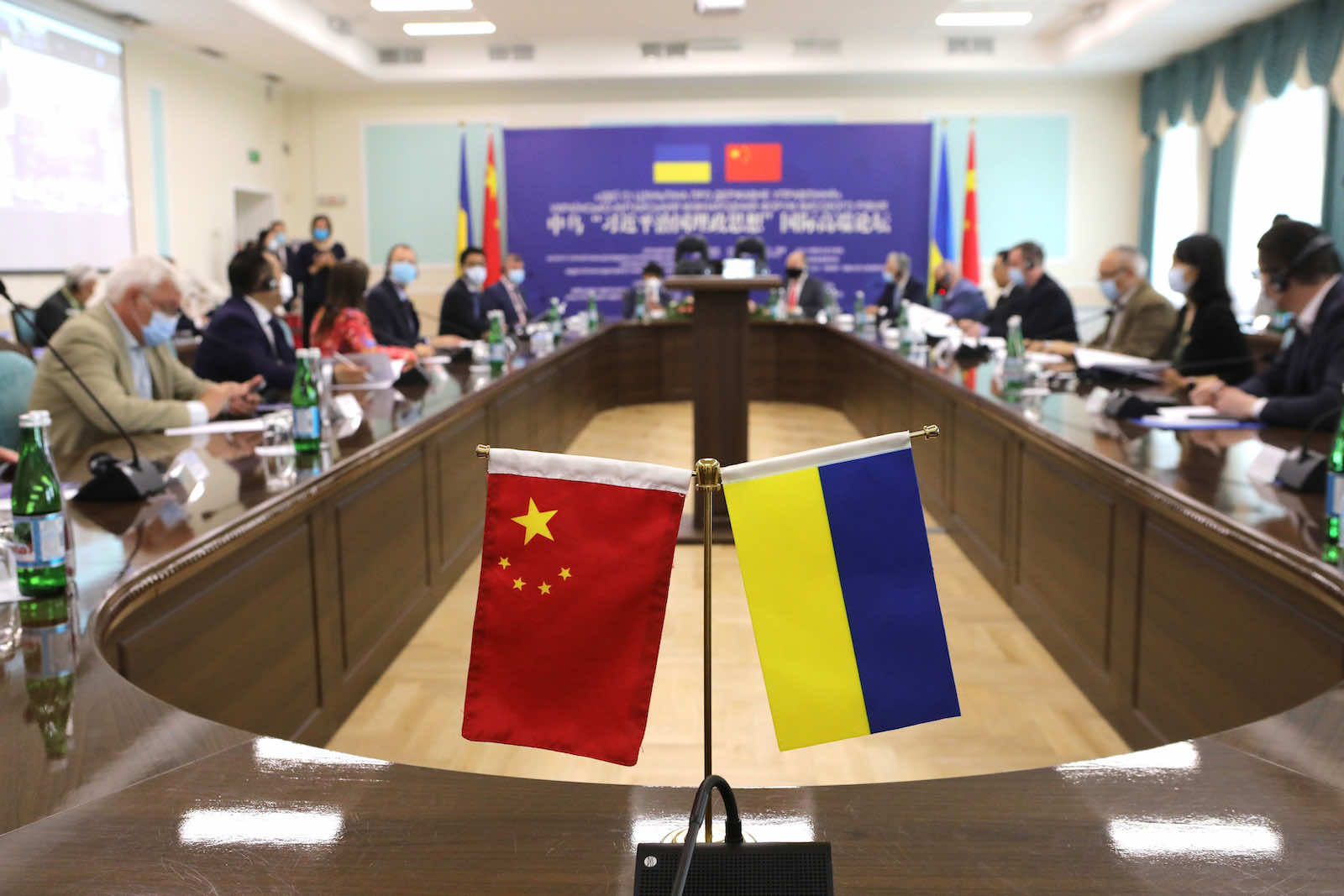Ukraine: balancing China and the rest
[ad_1]
Ukraine is trying to improve relations with China after the country’s authorities, allegedly under pressure from the United States, decide to stop the takeover of a local aircraft engine manufacturer by a Chinese company. Ukraine is generally seen as a country within a Western sphere of influence, but, like many, the Eastern European nation is also trying to balance the interests of the United States and from China.
Earlier this year, the Ukrainian government sanctioned four Chinese companies and three Chinese citizens who participated in a deal involving Ukrainian aerospace company Motor Sich, which is one of the largest producers of engines for helicopters, jets and missiles. Chinese state aviation company Skyrizon, which has been blacklisted by the US government, had sought to acquire a controlling stake in Motor Sich, which could provide access to sensitive aircraft manufacturing technology.
Despite a Ukrainian court ruling to seize the company’s assets and shares, Beijing’s reaction has been rather subdued. “We hope that the legitimate interests of Chinese investors in Ukraine will be effectively protected,†said Fan Xianrong, Chinese Ambassador to Ukraine.
Formally, Kiev and Beijing are strategic partners under an agreement signed in 2011.
Beijing’s only further response so far has been a request for international arbitration with the backing of major global law firms to further support Chinese investors. Although, according to some reports, in March and April criticism of Ukraine suddenly started to appear in the Chinese blogosphere, and it was not just about the nationalization of Motor Sich. In July, Song Kui, president of the Contemporary China-Russia Regional Economy Research Institute, told the World time that the prospects for Sino-Ukrainian cooperation are good if Kiev manages to “get rid of the country’s dependence on the West”.
Traditionally, Chinese media reports on the former Soviet republics have adopted a neutral to friendly tone. Ukraine is no exception. Such an approach continued even after the violent protests in Kyiv’s Maidan Square in 2013 and 2014, which resulted in the overthrow of allegedly pro-Russian President Viktor Yanukovych, and effectively changed the geopolitical course of the country.
All of this, however, has not affected China’s attitude towards Ukraine. China has recently emerged as the eastern European nation’s main trading partner, with exports of Ukrainian products to China breaking records at $ 7.1 billion, while the value of Chinese products imported to Ukraine reached $ 8.3 billion. This trade relationship means, in theory, that Beijing could impose an embargo on Ukrainian products in response to the Motor Sich dispute, which would undoubtedly have an impact on the Ukrainian economy. However, the People’s Republic seems to favor a different approach.
Instead of jeopardizing its trade relations with Kiev, Beijing has decided to increase its economic presence. On June 30, China and Ukraine signed an agreement to deepen their cooperation in the field of infrastructure construction. Judging from the experience of Balkan countries doing business with Beijing, Chinese companies are expected to work on road, bridge and rail projects in Ukraine, while local companies will be their subcontractors. In addition, Beijing and Kiev are said to be working on preparing a visa waiver deal, which means that the flow of Chinese tourists to Ukraine could potentially increase.
None of this seems likely to have a negative impact on the former Soviet republic’s ties with the West. As Ukraine’s Foreign Minister Dmytro Kuleba recently said, China is not Ukraine’s enemy, but neither is it a friend – just a trading partner. This business partnership appeared to be highlighted after Ukraine began importing a Chinese-made Covid-19 vaccine. Still, it’s also worth noting that the vaccines arrived after Kiev withdrew its signature from a joint international declaration on human rights concerns in China’s Xinjiang Uyghur Autonomous Region, a move hailed by Beijing.
Formally, Kiev and Beijing are strategic partners within the framework of an agreement signed in 2011. However, we do not know how to develop this partnership. According to the document, the two countries will offer each other strong support on issues of national sovereignty, reunification and territorial integrity. Indeed, China has never recognized Russia’s annexation of Crimea, while Ukraine sees Taiwan as an integral part of China.
It will be interesting to observe how Ukraine reconciles its attempts to develop economic ties with China with the growing attitude in the West that China presents as its main adversary. Given that the G7 countries recently unveiled a major infrastructure initiative for low-income countries, in a bid to counter China’s flagship Belt and Road initiative, Ukraine is expected to find itself in a difficult position. position similar to that of the Balkan countries which are not part of the European Union. .
Economically, Kiev will have to balance between China and the West, while politically it will seek to remain in the sphere of Western influence, even if it will sometimes have to make certain concessions to Beijing.
[ad_2]

